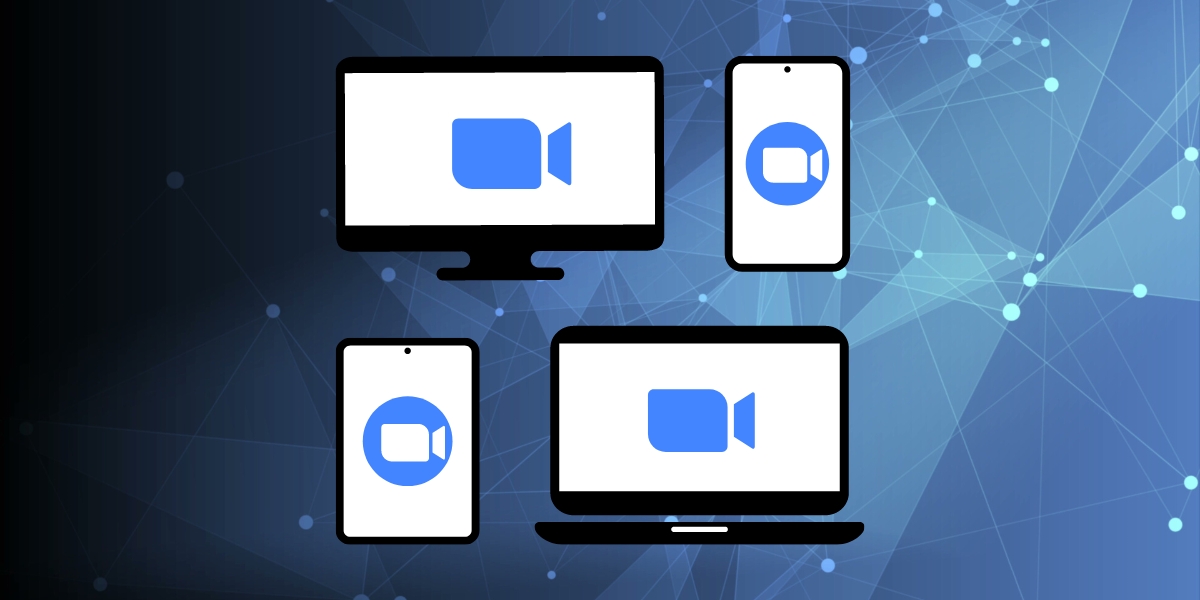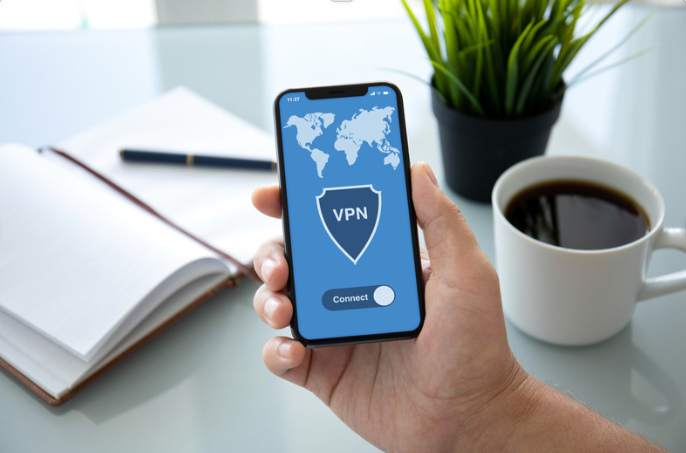What Is A VPN And How Does It Work?
Posted by iCoverLover on Feb 13, 2023
A VPN service is a type of online service that allows users to securely surf the internet by routing their internet traffic through a secure, encrypted tunnel. Devices are able to establish a secure and private connection to the internet, allowing users to access and share data without fear of interception or manipulation by third parties.
Types of encryption protocols, such as public-key cryptography, symmetric-key cryptography, and hash functions, are used to secure data transmitted over the internet, ensuring that users can access and share data without fear of interception or manipulation by third parties.
No one should have to worry about their online identity being compromised when they are accessing almost any site from any location in the world, as they should be able to do so with complete confidence and peace of mind. You can take the necessary steps to protect yourself by using a VPN or changing your internet service provider to one that offers more secure services and better privacy protection.

What is a VPN?
By using a secure protocol, such as a Virtual Private Network (VPN), you can ensure that your internet traffic is encrypted and routed through a server of your choice, providing you with a new IP address and a secure connection to the internet.
This effect makes it difficult for a third party to track your online activities or even attempt to steal your data. In other words, by using a VPN, you can be saved from being hacked. A VPN is made by building a virtual connection that is point-to-point using traffic encryption, virtual tunnelling systems or dedicated connections.
Moving forward, a VPN is one of the most essential tools required for anyone who would love to protect their online security, especially when using public wi-fi, or prevent people from invading their online privacy.
How does a VPN work?
Networks are an integral part of modern life, providing us with a way to communicate, share information, and stay connected with the world around us; however, they also present a potential risk to our online privacy, as data can be easily intercepted and stolen by malicious actors if we don't take the necessary precautions to protect ourselves. The way a VPN works is so interesting, in such a way that you wouldn't have to worry about your online privacy being leaked.
Check out the scenario below.
Your device's current IP address ⟶ VPN client
↓
ᯤ → Your VPN traffic passes
↓ through your ISP, but it
↓ is encrypted in a way that
↓ your ISP can't see it.
VPN server ⟶ A new IP address is created.
A VPN works by routing your internet traffic through a secured tunnel between a server operated by a VPN server and your computer or phone. Your internet traffic passes through your ISP (internet service provider), but since it has been encrypted, your ISP can't see it.
Moving forward, the encrypted traffic on your device is decoded by the VPN server, then it is transmitted to the web to obtain a message that is only meant for you. The VPN server decodes the traffic again and sends it back to you.
Additionally, the encrypted traffic is deciphered so that you can understand how to utilize it.
VPN protocols
As said, VPN stands for virtual private network and indicates a type of connection, which can be implemented in several ways. Most often used methods: PPTP (Point-to-Point Tunneling Protocol with Microsoft Point-to-Point Encryption), L2TP/IPSec (Layer 2 Tunnel Protocol with IPSec encryption) or OpenVPN (encryption with SSL/TLS). There is also SSTP, but it is only supported on Windows and partly on Linux. They differ in support, protection, simplicity and speed.
Are VPNs Legal?
In short, yes! VPNs are free to use in most countries, but there are some exceptions.
Countries like China and Iraq ban the use of non-government VPNs. This means that approved providers have most likely met privacy protection and censorship requirements, making their VPN services untrustworthy. Companies that don't comply are usually blocked, so you can't access their websites and download their apps when you're in those countries.
What are the advantages of using a VPN?
A VPN provides an additional layer of security by encrypting your data and routing it through a secure tunnel, which helps to protect your data from being intercepted by malicious actors, while also allowing you to access restricted content and remain anonymous online.
Your personal information is protected
A VPN protects all of your data by encrypting it, which makes it hard for a third party to access it. With the use of a VPN provider, you won't have to worry about being hacked by strangers or accessed by the government.
No matter where they are located, people can access almost any site from any of their locations around the world without having to worry about their online identity being compromised.
Anonymous activity
By using a VPN, your IP address can't be tracked because the VPN server provides you with a new IP address that is different from your location (depending on your choice).
But without using a VPN, it is otherwise. You can be easily tracked and all your online activities that are meant to be private can be easily intercepted.
Hiding the real location can be useful not only to make it difficult for someone to track your web browsing but also to access online content that is not available in your country.
This includes streaming movie and TV content, gaming or music providers, certain videos on YouTube or Twitter, and even websites blocked by the government (such as gambling).
Blocking malicious websites, ads, and trackers
Malicious websites can download malware and trackers to your device without your knowledge. VPNs with built-in protection help prevent infections and attacks by blocking these sites and hackers before they can do damage.
Some also block ads and pop-ups. This prevents malicious ads from infecting your device with malware, meaning you can enjoy streaming platforms like YouTube without ads.
Downsides to using a VPN

The benefits of using a VPN greatly outweigh the negatives, but there are also some drawbacks to be aware of to truly understand what a VPN is.
Internet connection speed may be slightly affected
It can take some time for your data to "travel", and once you're connected to a VPN, it has to travel a bit further to reach the VPN servers. It also takes a few seconds to encrypt and decrypt traffic. It's normal for your connection speed to slow down a bit. A VPN can't increase the amount of bandwidth available to you beyond what your connection is capable of.
Untrusted VPNs can access your browsing activity
If you use a less reputable provider, there's no way you can be sure that your browsing won't be viewed or shared with third parties. If your provider is based in the 5/9/14-Eyes Alliance, they may even be forced to share this information with the government.
You can protect yourself from this by using a well-known, reputable VPN with a strict no-logging policy and RAM-based servers. RAM-based servers permanently delete your data every time they restart, so your VPN won't have any information about you, even if it's required by law.
Some websites block VPN users
Some websites, such as Netflix, check your IP address against their list of known VPN server IP addresses when you sign up. If it matches, the connection will be blocked. You can overcome this by connecting to another server in the same region.
PayPal and some online banks may flag your account as a security breach if you log in from a foreign IP address.
As part of their online security process, PayPal and other online banking institutions may suspend access to your account if they see that you are logging in from a foreign IP address. This security measure is designed to prevent international fraudsters from logging into your accounts.
Don't worry - your account won't be locked forever. You may need to contact your bank to unblock your account. You can prevent this by accessing your financial accounts while connected to a server in your country.
What to consider when choosing a VPN?
Now that you have a lot of information about what a VPN is, it is important to choose a VPN that suits your needs and provides the best security and performance. When looking for a VPN, we recommend that you prioritise services that offer:
- 256-bit encryption: This is the highest level of encryption available and will protect your personal data and browsing;
- “kill switch”: “kill switch” turns on when your VPN connection becomes unstable. Temporarily disconnects you from the Internet to prevent data leakage;
- a strict no-logging policy;
- DNS and IPv6 leak protection;
- Customer Support: Most premium VPNs offer 24/7 live chat support on their websites. Few services offer telephone support, although this is also available in some places;
- user-friendly applications for your devices: see the website of the service provider. Most include screenshots of their applications so you can “feel” the program before installing it;
- large server coverage: you need a VPN with servers all over the world. This ensures access to geo-blocked content from any country. It also means that there will always be a server nearby when travelling;
- streaming servers and P2P-optimised servers;
- multiple simultaneous connections: Whether you have a large household or just a laptop and phone, you need to be able to protect all your devices without having to sign up for multiple VPN subscriptions.
Can you use VPN on mobile devices?
Using a VPN app on smartphones or tablets is quite simple. The problem is that some apps require root rights, which are additional problems and the possibility of turning the phone into a "brick". Look for apps that don't require roots. For example, there is OpenVPN on Android and Cloak on iOS. You can also use the free Opera VPN for iOS on iPhone and iPad.
The download process is very simple: download the application from the Play Market or AppStore, and install it on your device. Then activate the VPN, select a profile (from where to get the IP address), then the connection is established and that's it.
Conclusion
VPN providers offer secure and private ways to access the internet, allowing users to browse the web anonymously and access restricted content and almost any site from any location in the world without having to worry about their online identity being compromised. Not only individuals but businesses can benefit from using a secure VPN technology to access almost any site from any location in the world without having to worry about their online identity being compromised, allowing them to conduct their business activities with confidence and peace of mind.
